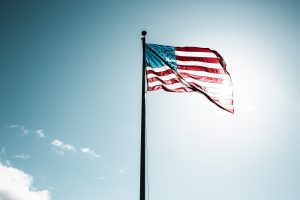In the eyes of many foreign observers, America’s response to the COVID-19 pandemic has been mediocre at best. Even though it received early warnings about the pandemic’s potential dangers — first from China and then from European countries, including Spain and Italy — the coronavirus spread rapidly and swiftly overwhelmed the U.S. healthcare system: the United States accounts for almost a third of all cases worldwide and nearly 30 percent of all deaths. Many of its Asian and European allies have performed far better, acting more quickly to impose lockdowns and more aggressively conducting testing and contact tracing.
To many of the United States’ friends abroad, the results have been catastrophic not just for the American people and the U.S. economy, but also for its standing in the world. Timothy Garton Ash, a leading historian of transatlantic ties, seemed to speak for many others when he said: “I would like to think that the world’s leading democracy gave an example of how well it dealt with the coronavirus pandemic, better than China. But it doesn’t look good.”
At the national level, the United States has indeed performed poorly in response to the pandemic. At the state and local level, however, it has provided countless examples of preparation, courage, and leadership that remain models for the rest of the world. As Washington charts the United States’ post-pandemic recovery, federalism remains a decisive comparative advantage — one that should play a central role in efforts to renew its soft power and counter China’s attempts to burnish its own.
No amount of messaging can — or should — obscure the fact that federal inaction has cost the United States dearly. Over 100,000 Americans have died. More than 36.5 million have filed for unemployment benefits over the past two months, and Goldman Sachs projects that the unemployment rate could rise to over 25 percent — the highest figure by far since the Great Depression. It is virtually certain that earlier, more decisive action by the Trump administration could have mitigated these catastrophic outcomes. Fortunately, however, the nation’s governors and mayors have stepped up — and theirs is an example the United States should proudly share with the world.
On April 13, the governors of California, Oregon, and Washington formed the Western States Pact, and their counterparts from seven states on the East Coast created a comparable coalition. On April 16, the governor of Minnesota announced that he was joining his colleagues from six other predominantly Midwestern states to form another pact. The member states of each regional group are sharing data and exchanging best practices with one another so that they can coordinate their reopenings in a judicious, incremental manner that best balances the imperatives of public health and economic revitalization. The 17 states that constitute these three pacts account for “nearly half the American population and an even higher percentage of the country’s economic activity.”
As U.S. ties with China and even longstanding allies fray over Washington’s response to the pandemic, some states are leveraging their international connections to engage in creative diplomacy of their own. On April 18, Maryland secured test kits capable of performing 500,000 coronavirus tests; the governor and his South Korean born-wife were able to leverage their friendship with Lee Soo Hyuk, Seoul’s ambassador to Washington, to strike a partnership with Korean-based LabGenomics and charter a 777 Korean Air plane. Perhaps even more remarkable is the story of how Massachusetts secured 1.2 million N95 masks from China at the beginning of April.
Meanwhile, an extraordinary array of businesses and nonprofit organizations have stepped up to furnish personal protective equipment for medical professionals at the hardest-hit hospitals, keep food pantries stocked, and help vulnerable segments of the public purchase groceries and medicines. America’s federal system enables this kind of grassroots response, and helps ensure that poor national-level leadership need not cripple America’s ability to address public policy challenges.
There are several ways in which the United States can mount a public diplomacy campaign that spotlights the advantages of federalism. The first is simply to craft messaging to that effect — messaging that can be employed across the U.S. government, from embassies to the Pentagon. That storyline would help counter the notion that foreign policy can only be, and only is, conducted from Washington.
The second way is to enlist governors, mayors, and other local leaders more directly in U.S. foreign policy. While local leaders exhibit a wide range of attitudes toward globalization — depending on their location and degree of economic exposure, among other factors, some tend to be instinctively skeptical while others tend to be more welcoming — and various levels of adeptness at managing its impact on their respective communities, the federal government can play a key role in helping them become more proactive members of the global ecosystem. Working through established coalitions of governors and mayors, for example, it can facilitate the creation of task forces on issues such as pandemic readiness and climate action. In times of crisis, such coalitions could be instrumental in rapidly enlisting the creativity and resources of subnational stakeholders.
The third, and perhaps most significant, way is to pass the City and State Diplomacy Act, which would create an Office of Subnational Diplomacy within the State Department. The State Department previously detailed foreign service officers for two-year tours in governors’ offices before the program was terminated in 2017. While working closely with state and local officials is nothing new for America’s diplomats, establishing the aforementioned office and reinstating this program would strongly signal America’s commitment to highlighting its federal system as a core comparative advantage — and one that, even in a pandemic, it can proudly share with the world.
Caroline Chang is an associate at Albright Stonebridge Group.
Scott Moore is director of the Penn Global China Program and a lecturer in political science at the University of Pennsylvania.
Ali Wyne is a nonresident senior fellow at the Atlantic Council and a nonresident fellow at the Modern War Institute.

































